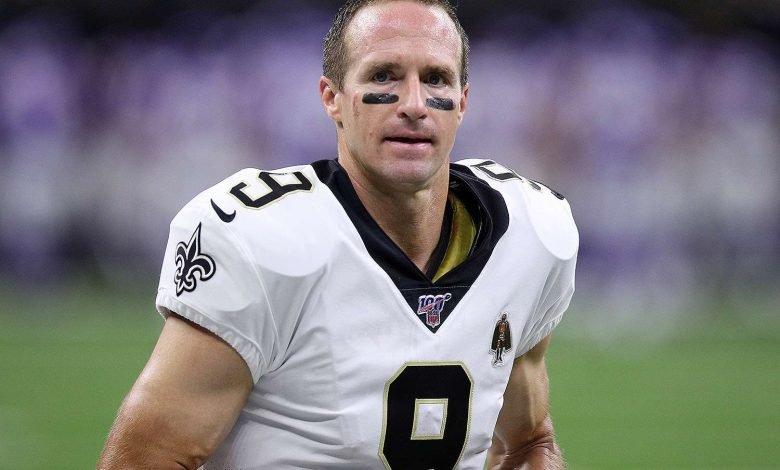Drew Brees, the legendary former New Orleans Saints quarterback, is no stranger to the spotlight. After a 20-year career in the NFL, Brees transitioned from the football field to the broadcast booth. Fans and analysts eagerly awaited this moment as Drew Brees makes his NBC debut, embarking on a new chapter in his professional journey. His move to television was met with excitement and high expectations. So, how does Brees’ debut stack up, and what can we expect from this football legend turned broadcaster?
In this blog post, we’ll explore Drew Brees’ NBC debut, his performance, the challenges of transitioning from player to commentator, and what his future in broadcasting might look like.
Drew Brees’ Journey to Broadcasting
Drew Brees’ NBC debut is a significant milestone in his post-playing career. Brees spent two decades mastering the game of football, becoming one of the sport’s most recognized and respected players. But making the transition from the field to the studio is no easy feat. It’s a different kind of pressure—one where insight, clarity, and communication skills take center stage. After retiring from the NFL in 2021, Brees didn’t waste time finding his next move. NBC saw the potential in his deep understanding of the game and his ability to connect with audiences.
The network tapped Brees for their NFL coverage, particularly on Football Night in America and as an analyst for Notre Dame games. His NBC debut marks the beginning of a new career, where Brees will share his insights, analysis, and personal experiences with football fans across the country.
The Pressure of Making an On-Air Debut
While Drew Brees has faced immense pressure on the football field, making his NBC debut came with a different set of challenges. Broadcasting, much like playing in the NFL, requires preparation, skill, and the ability to perform under pressure. However, instead of reading defenses and executing plays, Brees is now reading the game from the sidelines and delivering his analysis in real-time.
One of the biggest challenges Brees faced in his transition was finding his voice. As a player, Brees was a leader, using his voice to motivate teammates. Now, as a broadcaster, his role is to educate viewers and provide insightful commentary that deepens their understanding of the game. This change requires a different kind of communication, one that is less about rallying a team and more about engaging an audience.
The First Impression: How Drew Brees Performed
Drew Brees’ NBC debut was met with mixed reviews. Many fans appreciated his insightful analysis, drawing from his years of experience as one of the NFL’s most decorated quarterbacks. Brees was articulate, knowledgeable, and brought a fresh perspective to the broadcast booth. He was particularly strong when breaking down plays and offering a quarterback’s perspective on key moments in the game.
However, like any new broadcaster, there were areas for improvement. Some viewers noted that Brees could benefit from refining his delivery, as it sometimes lacked the smoothness of veteran commentators. Transitioning to television is no easy task, and even legends like Brees need time to adjust. But with his dedication to excellence, it’s only a matter of time before Brees becomes a polished broadcaster.
Challenges of Transitioning from Player to Broadcaster
For many athletes, the transition from player to broadcaster is daunting. Drew Brees makes his NBC debut with a unique set of challenges, as the skills that made him a successful quarterback don’t necessarily translate directly to broadcasting. While Brees understands the game better than most, communicating that knowledge to a wide audience requires a different skill set.
One challenge Brees faces is adjusting to the fast pace of live television. In the broadcast booth, there is little room for hesitation or mistakes. Brees must learn to think and speak quickly, delivering insightful analysis while keeping the broadcast flowing smoothly. Additionally, as a player, Brees was focused on executing plays. Now, his role is to critique those plays, often delivering his thoughts within a matter of seconds.
Another challenge is finding his on-air personality. Successful broadcasters often have distinctive personalities that resonate with viewers. Brees must strike a balance between being informative and engaging while remaining authentic to who he is. It’s a delicate balance, but one that Brees is likely to master with time.
Why Drew Brees Chose NBC
When Drew Brees retired from football, several networks expressed interest in bringing him on as a broadcaster. So, why did Brees choose NBC? For Brees, the decision was about more than just football. NBC offered him the opportunity to cover not only the NFL but also college football and other major sporting events. This variety appealed to Brees, allowing him to grow as a broadcaster and expand his skills beyond football.
NBC’s reputation for producing high-quality sports programming was another factor in Brees’ decision. The network’s flagship program, Sunday Night Football, consistently ranks as one of the top-rated shows on television, and Football Night in America provides a platform for Brees to showcase his analysis to millions of viewers each week.
Drew Brees’ Future in Broadcasting
Drew Brees makes his NBC debut with a bright future ahead of him in broadcasting. While it’s too early to predict how long Brees will remain in the booth, his commitment to excellence suggests that he will continue to improve and evolve as a broadcaster. Fans can expect Brees to become a fixture on NBC’s NFL coverage for years to come.
As he gains more experience, Brees may also expand his role within NBC’s sports division. He has expressed interest in covering a wide range of sports, from Olympic events to major golf tournaments. With his work ethic and drive to succeed, it wouldn’t be surprising to see Brees become one of NBC’s most prominent sports personalities.
Read more: Nick Sandmann’s Net Worth: Exploring the Rise in Wealth of the Covington Teen
FAQs
Drew Brees made his NBC debut as a football analyst, primarily covering NFL games on Football Night in America and Notre Dame football games.
Brees chose NBC for the opportunity to cover both NFL and college football, as well as other major sporting events. NBC’s reputation for top-notch sports broadcasting was also a key factor in his decision.
While Brees showed great potential as a broadcaster with insightful analysis, there is room for improvement in his delivery. However, with time and experience, Brees is expected to become a more polished broadcaster.
One of the biggest challenges Brees faced was adjusting to the fast pace of live television and refining his on-air personality to engage viewers effectively.
As Drew Brees makes his NBC debut, his future in broadcasting looks promising. Fans can expect him to continue improving as an analyst and possibly expand his role to cover other major sports events.
Conclusion
Drew Brees makes his NBC debut, marking a significant moment in his post-NFL career. While the transition from player to broadcaster is never easy, Brees’ knowledge, experience, and work ethic set him up for success in this new role. As he continues to refine his broadcasting skills, there’s no doubt that Brees will make a lasting impact in the world of sports media, just as he did on the football field. Fans and viewers alike can look forward to hearing more from Drew Brees as he embarks on this exciting new journey with NBC.





